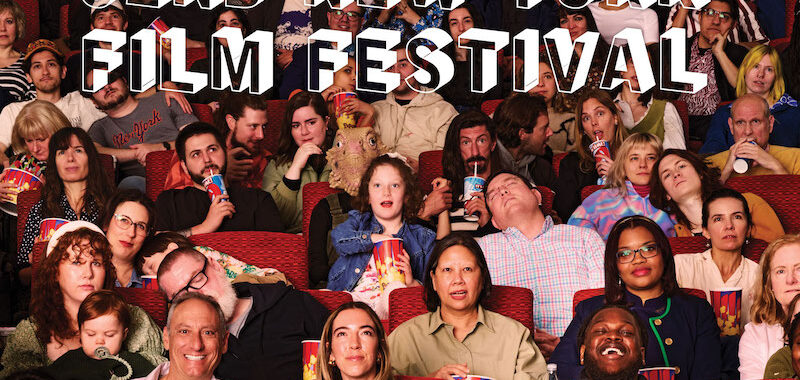Ah, the end of film festival season. That magical time of year when all the critics make their award predictions, and all your MoviePass pals are clogging theaters, eager to catch the indies without big distribution deals before they disappear from the face of the earth.
This week marks the end of the 62nd annual New York Film Festival, the last in a series that starts with Cannes in May. And this reporter managed to get into a few showings, where I noted some curious literary trends seeping into the cinema.
To speak on general narrative craft, there are some fascinating experiments happening with POV (Nickel Boys) and metaphor (Nightbitch) in this year’s hits. There are also some excellent films about reckonings, in a tragic or exculpatory tradition (On Becoming a Guinea Fowl, Dahomey).
But to keep it simple? Here are the literal literary takeaways.
 Adam Driver, on the edge.
Adam Driver, on the edge.
Everyone’s a little too into Ayn Rand.
Megalopolis, Frances Ford Coppola’s muddled opus, needs no more skeptics. Suffice it to say that not all of the literary references the maestro alluded to in this IG post seem to have made impressions on the final cut. What did come through was some strong Ayn energy.
In this Venice and TIFF favorite, Adam Driver plays a Howard Roark-ish architect with cryptic visions of utopia. His “Cesar Catilina” struggles against the grain of a spiritually rotten New York that resembles a pre-fall Roman Empire.
Relatedly, Brady Corbet’s The Brutalist, which appeared on the main slate of the NYFF this season, follows “a fictitious Jewish Hungarian architect and survivor of the Holocaust, whose arrival in America yields both rigorous struggle and tempting opportunity.” Thematic references abound to Rand’s The Fountainhead.
What’s with all this Rand-ing about? Let us pray it’s but some smooth-brain aesthetic theft, and not a harbinger of any major political shifts. At least in Megalopolis, the nod feels nominal. Coppola took the cubism and Great Men of History theory, but not necessarily the neoconservatism.
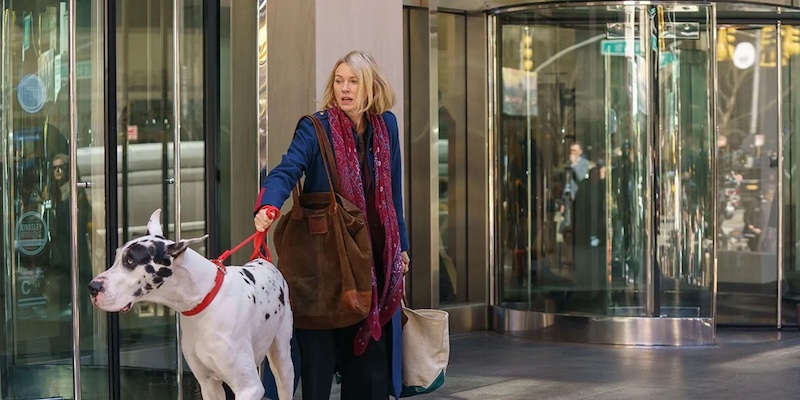 Naomi Watts, with her new best Friend.
Naomi Watts, with her new best Friend.
Get in, loser. We’re all adapting Sigrid Nunez.
This year, two Nunez novels were adapted for film—The Friend, and What Are You Going Through.
The latter is the inspiration for The Room Next Door, the award-winning Spanish filmmaker Pedro Almodóvar’s first English language feature. This film stars Julianne Moore and Tilda Swinton as two writer pals who’ve lost touch over the years. It won the Golden Lion at Venice, and was a NYFF62 Centerpiece selection.
On simultaneous screens, Naomi Watts is starring in an elegant adaptation of Nunez’s National Book Award-winning novel.
The Nunez-on-screen trend is a curious one, given that all this writer’s writer’s recent novels are bastions of interiority. Not much happens in either of the books that’ve been adapted, other than peripatetic women beautifully reflecting. There are no huge betrayals, no super-storms. Quiet grief trumps riotous affairs. How to explain, then, the Nunez treatment?
Here I note that both these stories offer great roles for single women over forty, a mighty demographic that’s historically been under-imagined by Hollywood. And I’m not about to deprive Julianne or Naomi of star vehicles.
That, or we chalk these flicks up to Demure Fall.
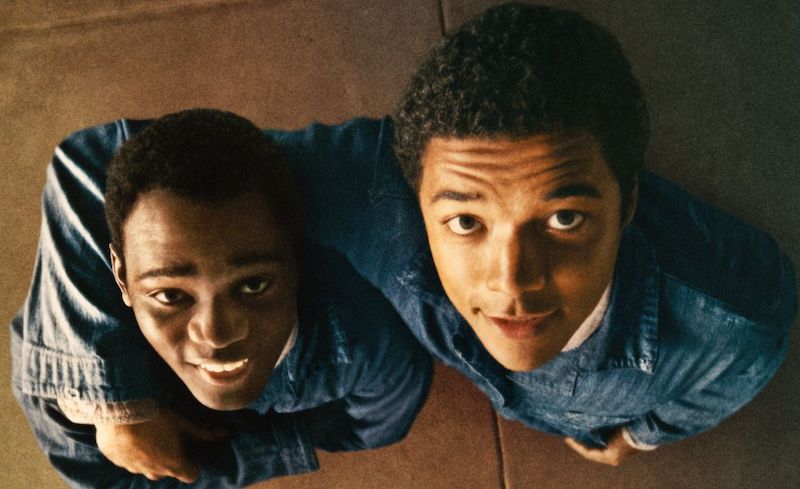 Stars-to-watch-out-for Ethan Herisse and Brandon Wilson, in Nickel Boys.
Stars-to-watch-out-for Ethan Herisse and Brandon Wilson, in Nickel Boys.
See also—mid-century historical “fiction.”
Colson Whitehead’s gutting Nickel Boys is set in the early days of the Civil Rights movement. Following two young boys who’ve been incarcerated in a hellish juvenile detention center in the South, this heart-breaking story is loosely inspired by the very real, very horrible Dozier School for Boys.
Luca Guadagnino’s Queer is adapted from William S. Burroughs’ book by the same name. Burroughs’ gritty, long-unpublished, semi-autobiographical novel was written in 1952, and it explores a drug hazy quest in Mexico.
Finally on the historical “fiction” front, we have Oh, Canada. Paul Schrader’s latest feature is a time-hopping drama adapted from Russell Banks’ novel, Foregone. This melancholic period piece zips between a present day and the 1970s, as a man reflects on his secret past as a draft-dodger.
A sign of the times?
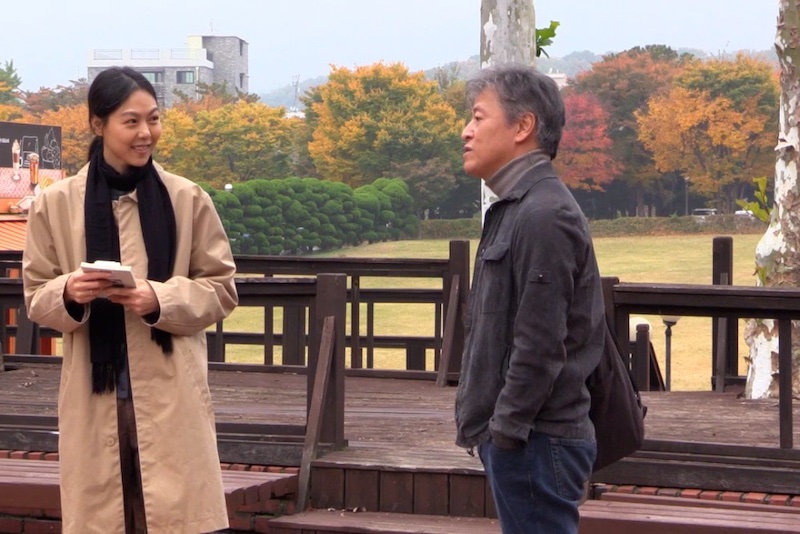 Kim Min-hee and Kwon Hae-hyo in By the Stream.
Kim Min-hee and Kwon Hae-hyo in By the Stream.
We love writers as heroes, and books as Chekhovian guns.
Perhaps needless to say, all the Nunez heroines are writers. But there are other creative protagonists studding the festival circuit.
At TIFF, Laura Piani’s feature debut, Jane Austen Wrecked My Life, centers an “aspiring author looking to get more out of life” via a residency.
And the wonderfully prolific Korean director Hong Sang-soo brings us a former director/playwright in By the Stream, one of his two festival entries this season.
Alfonso Cuarón’s latest film, Disclaimer, puts a writer in the middle of the action, too. This psychological thriller stars Cate Blanchett as a journalist with a dark secret. That plot gets extra literary points for hinging on a mysterious novel(!) that Blanchett’s character receives in the mail. This book inside a movie about a book contains a deep, dark secret.
To make things even more meta, Disclaimer is also an adaptation. From the same name novel by Renee Knight.
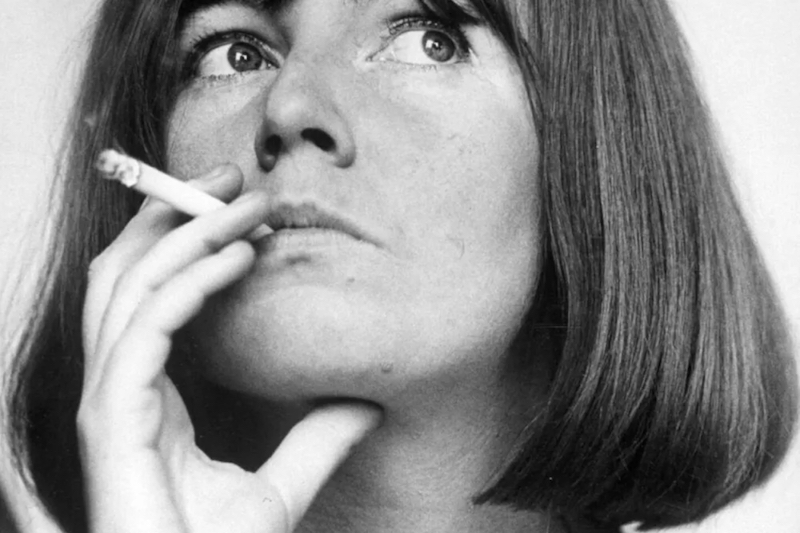 Edna in Blue Road.
Edna in Blue Road.
Author docs are in.
Edna O’Brien gets the doc treatment in this new bio from Sinéad O’Shea, which premiered at TIFF. And fan favorite Jimmy Baldwin received several special documentary screenings in Toronto this year.
Images via, via, via, via
Cover image via, credit David Byrne for NYFF.

